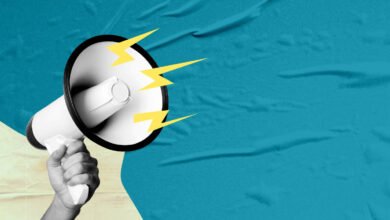OpenAI’s New Social App for AI Video Creation

▼ Summary
– OpenAI is launching a standalone Sora 2 app featuring a TikTok-like vertical video feed where all content is AI-generated.
– Users can create 10-second AI video clips but cannot upload photos or videos from their camera roll or other apps.
– The app includes identity verification allowing users to use their likeness in videos and receive notifications when others use it.
– OpenAI sees this as an opportunity to transform AI video interaction, similar to ChatGPT’s impact, amid TikTok’s uncertain US operations.
– The Sora 2 app faces competition from Meta and Google’s AI video tools while navigating copyright lawsuits and child safety concerns.
OpenAI is reportedly developing a stand-alone social application for its advanced Sora 2 video generation model, designed with a vertical video feed and swipe-to-scroll navigation that closely mirrors the user experience of popular platforms like TikTok. A key distinction is that every piece of content within this app will be generated by artificial intelligence. The interface includes a “For You” style page driven by a recommendation algorithm, and a menu bar on the side of the feed provides options to like, comment, or remix any video.
According to internal documentation, users will be able to produce video clips lasting up to ten seconds using OpenAI’s next-generation video model. The app does not currently support uploading personal photos or videos from a user’s camera roll or other applications, focusing exclusively on AI-created content.
A notable feature of the Sora 2 App is an identity verification system. Once users confirm their likeness, they can incorporate their own image into generated videos. Other users are also permitted to tag them and use their verified likeness in clips. For instance, someone could create a video showing themselves and a friend on a theme park roller coaster. Sources indicate that users receive a notification whenever their likeness is utilized, even if the video is only saved as a draft and never published publicly.
The application was released internally last week and has already garnered highly positive feedback from employees. Usage has been so frequent that some managers have humorously suggested it could impact workplace productivity. OpenAI has chosen not to provide an official comment on the matter.
The company seems to be making a strategic bet that the Sora 2 app will allow people to engage with AI-generated video in a manner that fundamentally transforms their interaction with the technology, much like ChatGPT did for AI-generated text. Internally, there is a perception that the uncertain status of TikTok’s US operations, amid ongoing discussions about its potential sale, presents a unique opportunity to launch a short-form video app—especially one without affiliations to China.
OpenAI first introduced Sora to the public in December of last year. Initial access was limited to a web page before the capability was integrated directly into the ChatGPT application. At its launch, the model was considered one of the most advanced AI video generators available, though the company acknowledged certain limitations, such as an incomplete understanding of physics and difficulties producing realistic action sequences, particularly in longer clips.
The forthcoming Sora 2 app will enter a competitive landscape, facing new AI video offerings from industry giants like Meta and Google. Recently, Meta unveiled a new feed named Vibes within its Meta AI app, dedicated to creating and sharing short AI-generated videos. Earlier this month, Google announced it is integrating a custom iteration of its latest video generation model, Veo 3, directly into YouTube.
In contrast, TikTok has adopted a more cautious stance regarding AI-generated content. The platform recently updated its policies, now explicitly prohibiting AI-generated material that is misleading on matters of public importance or harmful to individuals.
Sources familiar with the Sora 2 app note that it frequently declines to generate videos due to built-in copyright safeguards and other content filters. OpenAI is currently involved in several lawsuits concerning alleged copyright infringement, including a prominent case filed by The New York Times, which alleges that OpenAI trained its models on the newspaper’s copyrighted content without permission.
OpenAI is also confronting increasing scrutiny over child safety. This week, the company introduced new parental controls, including the ability for parents and teenagers to link their accounts. Additionally, OpenAI is developing an age-prediction tool intended to automatically direct users believed to be under 18 to a more restricted version of ChatGPT that prohibits romantic interactions, among other limitations. It remains unclear what specific age restrictions will be implemented within the Sora 2 app.
(Source: Wired)





